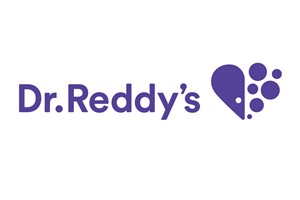Despite extensive promotion by certain carriers and forwarders, the standards within pharmaceutical logistics often fall short of their advertised quality, necessitating further standardization, according to a pharmaceutical shipper, Yulia Ceretaria, the Head of Logistics for Early Health Group. Ceretaria, who previously held the position of Global Pharma Director for Volga-Dnepr Group and AirBridgeCargo, emphasized the lack of understanding among some shippers about the airline industry. She highlighted the challenges she faced, including prolonged waits for responses from forwarders or airlines, deeming it unacceptable.
The global pharmaceutical industry is currently in vogue, but Ceretaria expressed concern about companies rushing into it without establishing a solid foundation of service and quality. She stressed the need for a thorough evaluation of quality and emphasized that the pharma sector requires a robust and transparent foundation.
Ceretaria acknowledged the indirect interaction between pharma shippers and airlines, necessitating effective communication through forwarders. However, she observed similar challenges even among some forwarders, with an influx of new products in the market. Emphasizing the importance of demonstrating product quality, she urged stakeholders, including trucking and handling services, to engage in transparent conversations to enhance understanding.
Pharma shippers typically engage multiple forwarders for different regions, facing difficulties in maintaining standardized quality, especially in remote areas. Ceretaria recommended the involvement of local specialists, highlighting the stable but niche nature of the pharma business that has led small and medium-sized enterprises to venture into the sector.
While welcoming product diversification, Ceretaria expressed concerns about the lack of standardization due to airlines introducing internal handling codes. She advocated for the development of a comprehensive, integrated standard for pharma that could be universally adopted.
While recognizing the value of fully integrated services provided by companies like UPS or DHL, Ceretaria noted their higher costs and a perceived lack of attention to the clinical trial sector. She encouraged companies to establish a one-stop shop for pharma with a unified standard accessible to everyone.
In contrast to her call for industry standards, Ceretaria was somewhat dismissive of IATA's CEIV program, suggesting that it often serves as a mere marketing tool unless companies internally implement the right processes to ensure product quality. She highlighted the significant cost associated with obtaining CEIV certification and the varying levels of commitment among companies.
Despite the challenges, Etihad Cargo's Head of Global Cool Chain Solutions, Fabrice Panza, emphasized the importance of maintaining high-quality standards in pharma logistics. He highlighted the stringent requirements of the CEIV program and the necessity for full compliance from every partner, contributing to Etihad's impressive 99.2% quality level in pharma logistics. Panza acknowledged the difficulties of achieving and communicating CEIV validation but emphasized its importance as part of the investment and strategy for sustaining quality.
theloadstar.com - Alex Lennane










